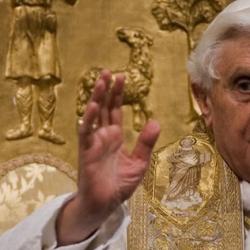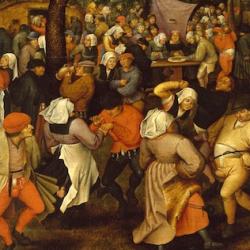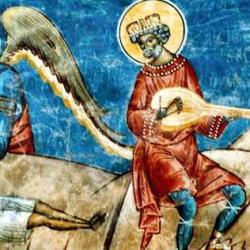Benedict rejects the notion that Catholic social theory treats social and political institutions – the state, the economy, civil society, for instance – as – autonomous, extrinsically-related “subjects” with different logics. On this view, the economy would be the sphere of wealth-generation, politics the sphere of power, and civil society the sphere of solidarity and fair distribution of resources.
In Caritas in Veritate, Benedict (in David Schindler’s words) “rejects this dichotomy between ‘subjects’ that would undermine the call to love as integrative of every human activity and of all development. . . . we must supercede the dominant view that expects the Church’s social teaching, involving as it does the centrality of the person and, in this light, solidarity, subsidiarity, and the common good, to be confined to societal-cultural activities, as it were, while ‘experts in efficiency’ are charged with running the economy, and indeed the order of politics” (Ordering Love, 442).
Benedict himself claims that economics is incapable of solving social problems by “commercial logic,” but “needs to be directed towards the pursuit of the common good, for which the political community in particular must also take responsibility” (36). Gratuity and gift “can and must find their place within normal economic activity” (36).
Insofar as it operates with an extrinsic conception of the “spheres” of public life, Reformed theology needs its own infusion of integralism.












